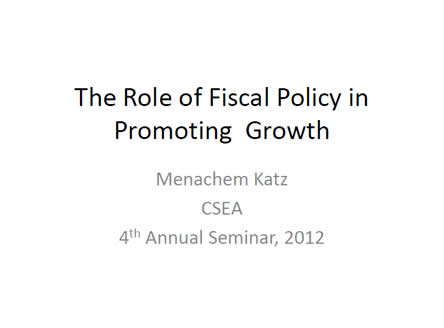Author:Menachem Katz
Publication Date: December, 2012
Document Size:31pages
Recent experience with fiscal policy
- Prior to 2004 fiscal policy was pro-cyclicalsubjecting the economy to boom-bust cycles
- During 2004-2008 , with oil price-based ruleand ECA, economy stabilized and inflation fell.
- In 2009 and 2010 external shock and largespending expansion resulted in high budgetdeficits and depletion of ECA
- Since 2012, fiscal policy has been tightened.

